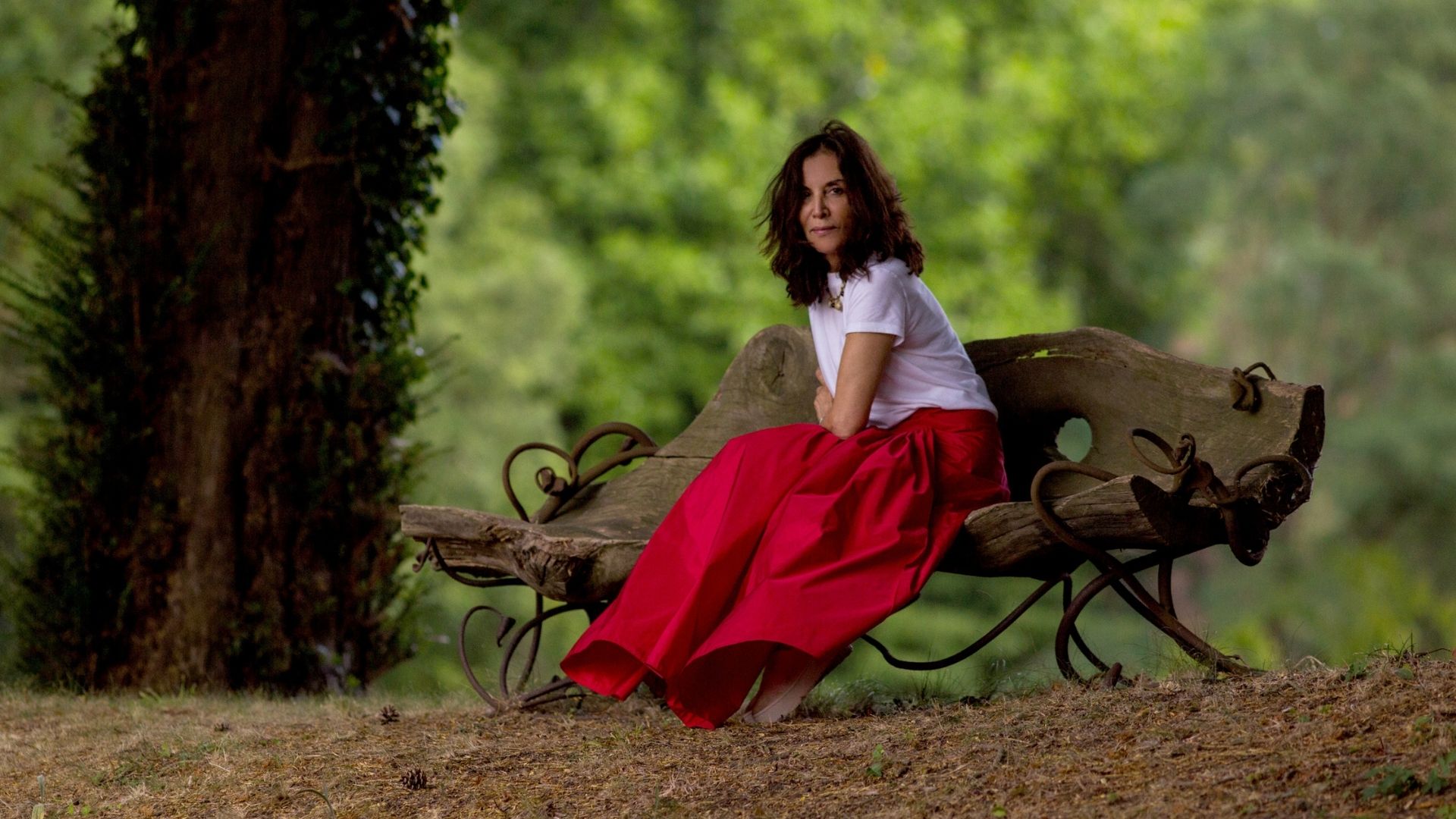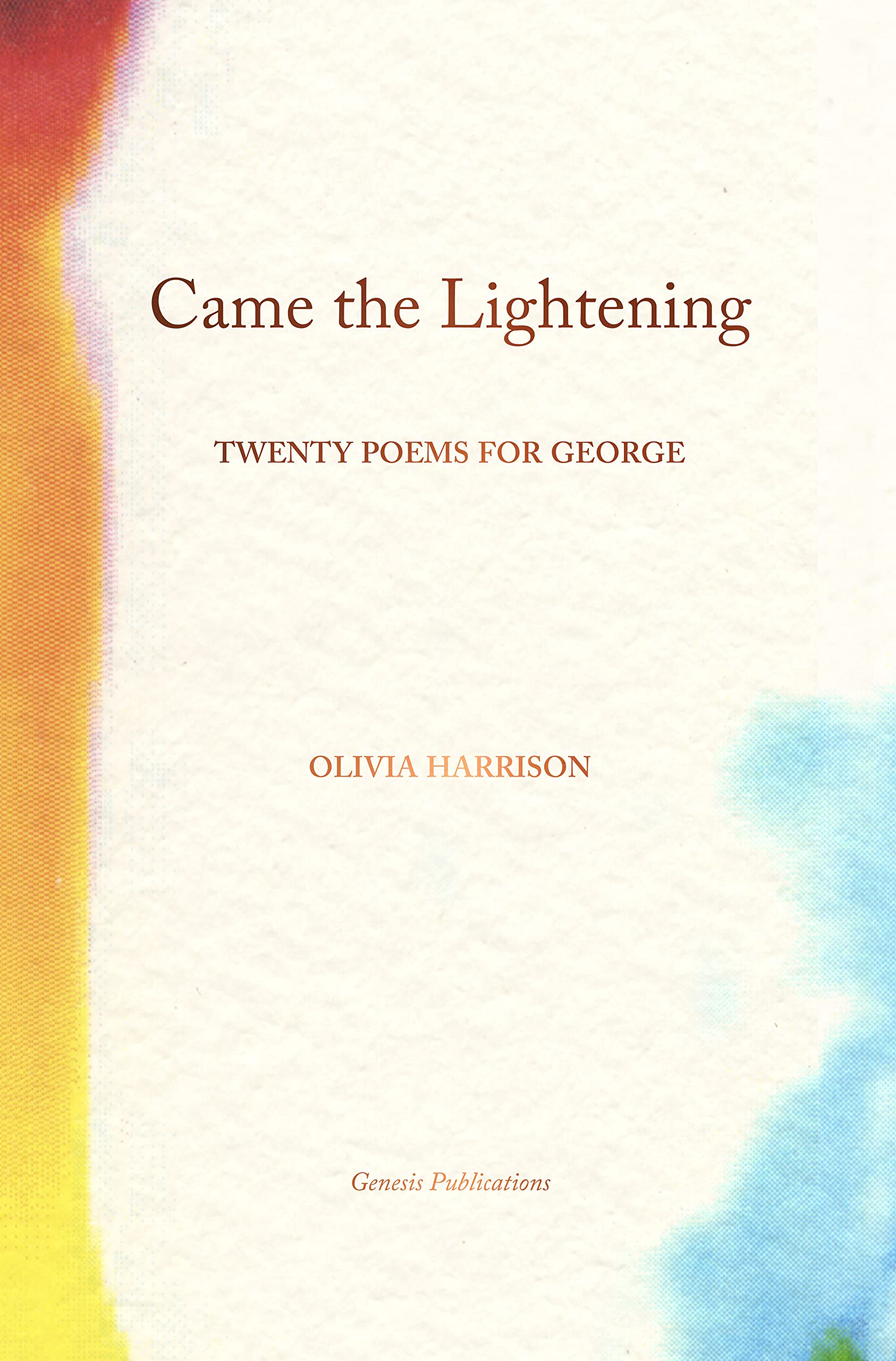You are viewing your 1 free article this month. Login to read more articles.
Olivia Harrison discusses her poetry collection, healing and self-discovery
Drawing inspiration from the likes of Pablo Neruda and the experience of a break-in at her home, Olivia Harrison describes how writing a poetry collection enabled her to find herself.
Olivia Harrison’s poetry collection Came the Lightening (Genesis, 21st June 2022) is an autobiography in poems and a homage to George Harrison, the former Beatle and her husband of 23 years, and their life together. Harrison’s poetry centres herself and George within the natural world, cutting through the legend of the musician to an intimate portrait of George as a father and husband. Harrison and I spoke over Zoom about her writing process, inspiration and self-discovery.
How did this poetry collection come about? Why did you choose to write a poetic autobiography?
I didn’t seem to have a choice creatively. I have a lot of stories to tell, but I never wanted to write an autobiography. There have been too many from people all around me and it just seemed redundant. I had a friend who said to me "You should write some of these stories", and I said, "I need some ideas". I happened to be in Greece at the time and he said, "just jump in the water and whatever comes into your head, the first thought, that’s your start". I dove in with intention and something came to my head that had happened 40 years ago and then I just started writing about it, but somehow it just came out in that form. I’m as surprised as anyone.
Why did you choose an excerpt from Pablo Neruda’s "Oda al fuego" to preface the collection?
I love Pablo Neruda – "An Ode to Fire" – I read that and I thought "Where are you? Where have you gone?". To distil your feelings and your years together into these poems, it’s intense. It’s really intense. I’ve never considered myself a poet. I’m not. I can’t say I am. I found this form, or it found me, and through it I was able to really tell the most personal feelings and my personal observations of myself as well as George. I found myself on these pages too. As much as I found George, I really found myself on these pages.
Your poem "Heroic Couple" deals with the invasion of your home and the assault on George. How did this affect your life?
After "Heroic Couple" the collection gets intense and that’s really how it went in life. That [break-in] happened to us in 2000 on New Year’s Eve, and George died in 2001. Things went fast after that and so that poem changed the tone of the book, because it changed the tone of our lives too. It shattered not only the glass, but our sense of security – anything you thought about your life, or the world, just shattered like a window. I thought there would be time to enjoy our journey [as a family] and then time to recover from it. But you don’t ever recover from it, and I think that’s just how it goes.
Extract
Carved In Stone
Only the past is carved in stone
So that it will not be forgotten.
This sand, once granite,
Covers and clings to my wet feet.
Ancient geology as I walk to the sea
Each grain a memory being set free
To solidify and be carved again
Marking the time once more
So the past will not be forgotten.
There is a book called Graceful Exits about different people who had beautiful deaths, how they had the "good death". George did [have a good death] and that's why I wrote: "Death proper, not impostor", because had he died that night [during the attack], it would have been a dreadful thing to live with and a dreadful thing for him. He always felt dreadful for John Lennon because he never had a chance to leave in a way where he felt his life was concluded the way he wanted it to be. George got to leave in a certain way. To pass away on your own terms, not in a violent way, was a huge triumph.







